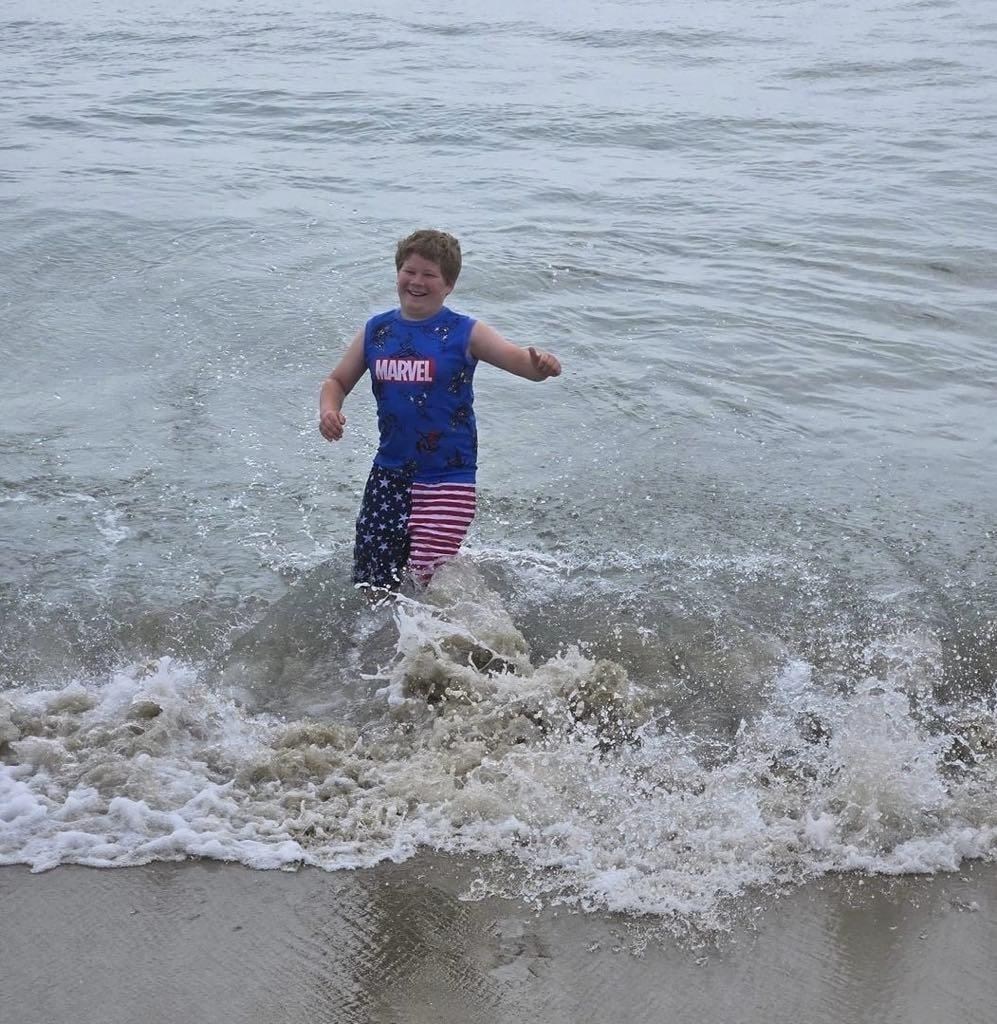A day at the beach is often seen as the perfect escape from oppressive summer heat—the kind of day where you leave all your worries behind and immerse yourself in the sun, sand, and waves. It’s a place of relaxation, fun, and a chance to reconnect with nature. But for one Massachusetts mother, that idyllic image was shattered by an unexpected danger, revealing that the shoreline, while beautiful, can also hide insidious risks that many people may not be aware of.
Heather Cassini, a 40-year-old mother of one, had been looking forward to a day at Hampton Beach in New Hampshire with her family. The sun was blazing, the breeze was gentle, and she thought, finally, some relief from the intense heat. Her plan was simple: let her 10-year-old son, Declan, splash in the ocean, play with sandcastles, and cool off in the water. She kept a watchful eye on him, but she also tried to keep her own worries at bay. It was supposed to be a carefree day of sunshine and family bonding—until it wasn’t.
Despite the fact that the incident happened over a week ago, Heather admits that she still feels shaken whenever she thinks about it. For her, the memory remains fresh, haunting even after so much time has passed. She described her experience in a now-viral Facebook post, warning other parents and beachgoers about a danger they might overlook—hypothermia occurring despite the heat and blazing sun.
It all started pleasantly enough. Heather described how Declan had been happily playing in the ocean, jumping over waves, and splashing in the shallow water. The water temperature was warm—around 52 degrees Fahrenheit, which might seem comfortably cool for some, especially those accustomed to swimming in cold water. She didn’t initially worry when Declan said he didn’t feel well. After all, it was a hot day, and she thought perhaps he simply needed to rest. “I thought the breakfast was just too much for the waves and he just needed to lay down,” she explained, trying to reassure herself that it was just exhaustion or maybe some minor stomach upset.
But things took a startling turn as they began to head back to the shore. That’s when Declan suddenly became disoriented. His eyes looked unfocused, and he seemed to be struggling to keep his balance. Without warning, he fell into a sunbather nearby, nearly colliding with her as he lost control of his movements. Heather’s motherly instincts kicked in immediately—she rushed to his side, grabbing his arm, trying to steady him and keep him from falling again. She knew he was in trouble, but she didn’t realize how serious it was until they tried to get him to stand up again.
In that moment, Heather’s heart froze. She mentioned that she was trying desperately to lift him—knowing she was pregnant herself, her mind racing to keep calm and think clearly. Declan was throwing up and was so pale that he looked almost ghost-like. His body was trembling uncontrollably, and he kept drifting in and out of unconsciousness. Heather recalls feeling a wave of panic washing over her—all those lifetime movies about drowning and hypothermia suddenly felt painfully real.
Luckily, a group of women who’d been nearby noticed the sudden commotion. They instinctively moved in, quick to respond. With medical experience and calm nerves, they started monitoring Declan’s vitals, trying to keep him warm and alert. Their hands moved gently but purposefully, stabilizing him as Heather called for emergency help. The women’s quick thinking and caring attitude made all the difference in those critical moments.
Heather remembers one of them softly praying aloud, thanking God for those present and saying, “May God bless everyone in our vicinity.” Their kindness and swift action were a calming presence amid the chaos. As they waited for paramedics, Heather’s mind was flooded with a mixture of relief, fear, and guilt—relief that her son was still alive, fear for what could have happened, and guilt for not recognizing the danger sooner.
It was only after the medical team arrived that the full story began to emerge. Despite the sweltering heat, the water’s temperature was shockingly cold—about 52 degrees—and that’s what caused Declan’s body to go into shock. His body, which had been so active and healthy earlier that day, was suddenly deprived of what it needed most: warmth. The cold water had sapped his strength, causing his body temperature to plummet, and in that moment, he was at grave risk of more serious complications.
After being rushed to the hospital, doctors confirmed what everyone feared: Declan was suffering from hypothermia. They explained how even in the middle of summer, cold water can be deadly. Many parents don’t realize that even if the air temperature is hot, swimming in cold water can lower body temperature rapidly, especially for children whose bodies are less adept at regulating heat. The risk is real. And, as Heather pointed out afterward,




